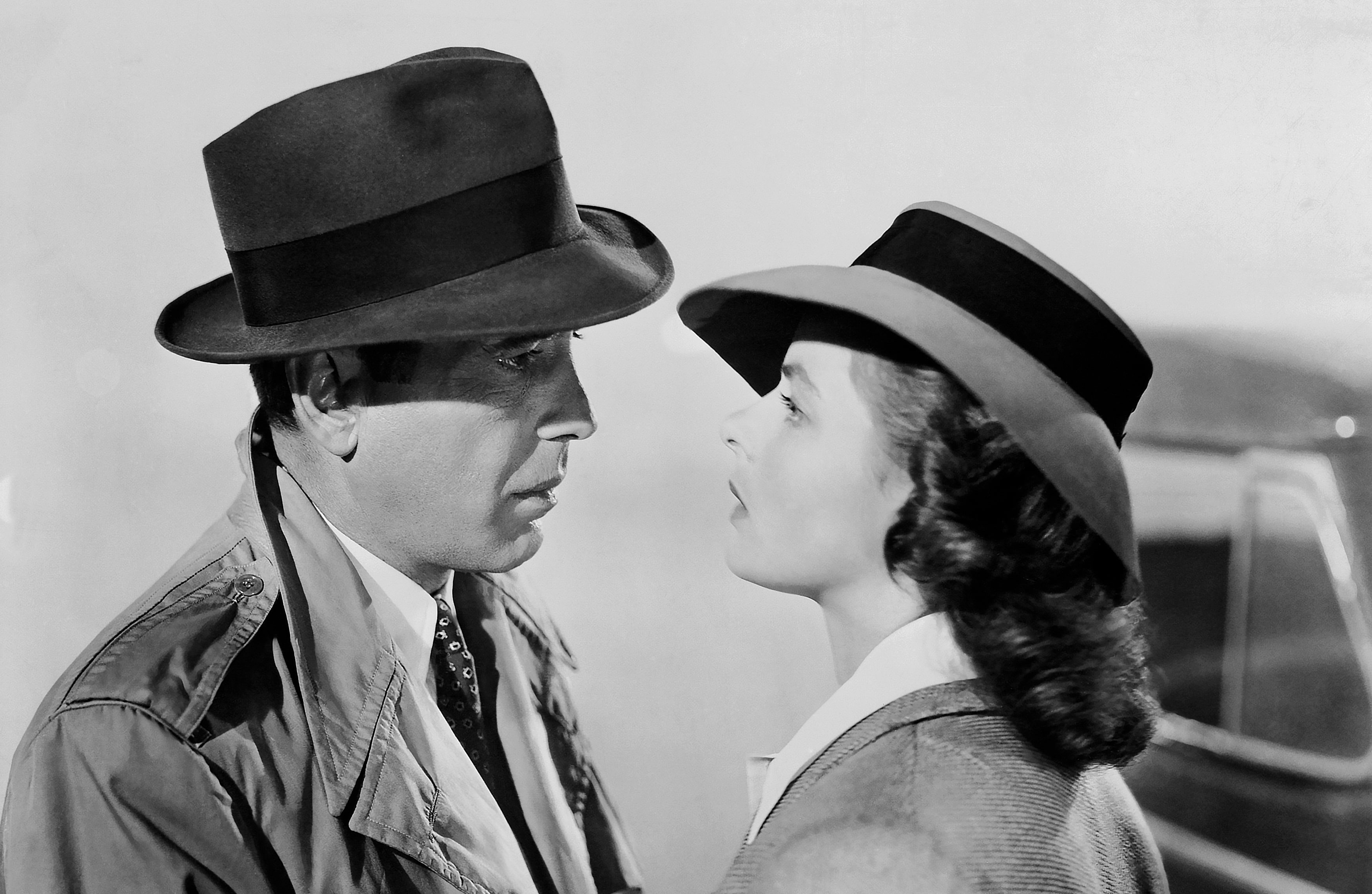From Dr. Esolen at Word and Song:
“As the leader of all the illegal activities in Casablanca,” says the immensely fat and self-satisfied Signor Ferrari (Sydney Greenstreet), “I am an influential and respected man.” And he is, too; neither wicked enough to be a devil, nor good enough to be genuinely and fully human, situated uneasily, as Casablanca itself is, between a world of heroism and devotion, and a world of cowardice, treachery, and idolatry. It is a city in which the heroes of the French resistance must work stealthily lest they be found out and shot, while the time-servers get along to go along with their Nazi bosses; and still others, pickpockets, card sharpers, gamblers, money lenders, protection racketeers, and the once-virtuous Rick Blaine (Humphrey Bogart), the proprietor of Rick’s American Cafe, commit themselves neither to God nor to Satan, but are for themselves first and last. In other words, Casablanca is the world, and the drama that plays out in its dirty and dangerous streets and backrooms is for the soul of the world, and more important, for the soul of this man and that man, this woman and that woman, dancing on a precipice, and usually unaware of it.
I suppose that most of our readers have seen our Film of the Week, Casablanca, which, alongside The Man Who Shot Liberty Valance and It’s a Wonderful Life, is the most quotable of films, well distributed among the main characters and fit for the brilliant cast. “Major Strasser has been shot,” says the corrupt French officer, Captain Renault (Claude Rains). He hesitates a moment, and rather than expose Rick, who has just done the shooting, he gives the usual and mutually understood non-order to his men: “Round up the usual suspects!” Or we may think of the tense conversation between Rick and Victor Laszlo (Paul Henreid), the husband of the only woman Rick has ever loved, as Rick pretends to believe in nothing and care for nothing, but Laszlo, like a physician of the soul, will not let him be. “Mr. Blaine,” he says, “you sound like a man who’s trying to convince himself of something he doesn’t believe in his heart.” And Ilsa (Ingrid Bergman), Laszlo’s wife, who had believed that her husband, a leader of the movement against the Nazis, was dead, and who then fell in love with Rick in Paris just before the Nazis entered the city — and just before she learned that Laszlo was still alive; what can she say when she finds Rick in Casablanca, cynical and filled with contempt and unwilling to hear why she left him standing in the rain at the Paris train station, but that the man she once knew and loved — Rick himself, that is — was dead?
People will say that Casablanca is a film for its time, and indeed it is, as it was intended to gin up patriotic feeling and fervor for liberty as opposed to Nazi domination. There’s no musical scene I know of in Hollywood history that, for its sheer human force, can match the moment when Paul Henreid bravely instructs the orchestra to play The Marseillaise, to drown out the Nazis as they sing Deutschland Ueber Alles; and the French people in Rick’s Cafe, and the Russians too, and the Jews escaping to North America, join in that mighty anthem. It is easy, too easy, to repeat a line that everybody knows, “Play it, Sam,” as Rick tells his piano player to strike up the song that was his and Ilsa’s in Paris, “As Time Goes By” — though actually he doesn’t say those precise words. Too easy — because Casablanca the film is no more bound to its peculiar time than Casablanca the city was to its peculiar location between the desert and the Mediterranean Sea. The film is about no less than the reclamation of a human soul. (Read more.)
More on the famous song "As Time Goes By," HERE.
Share



















No comments:
Post a Comment